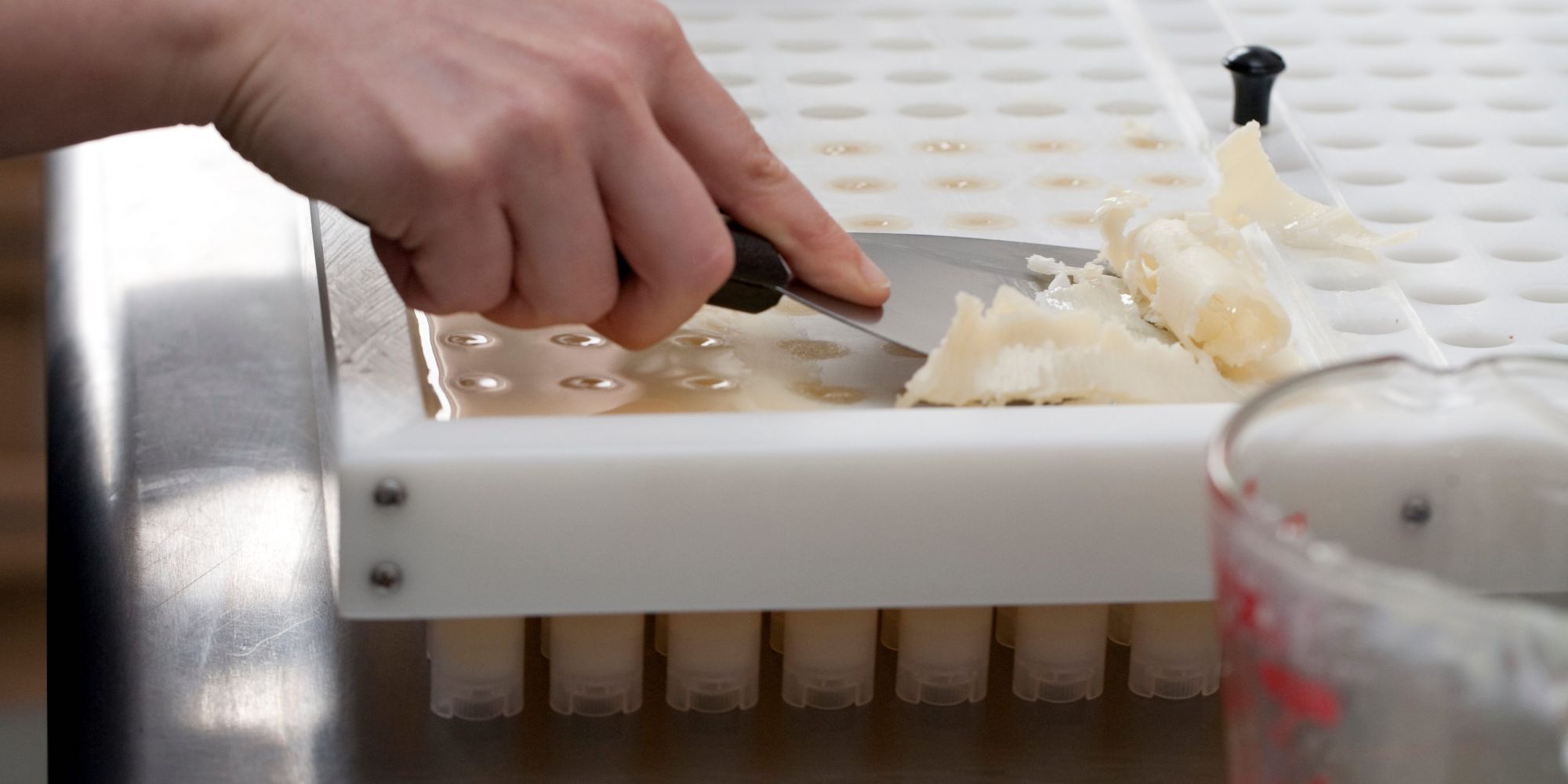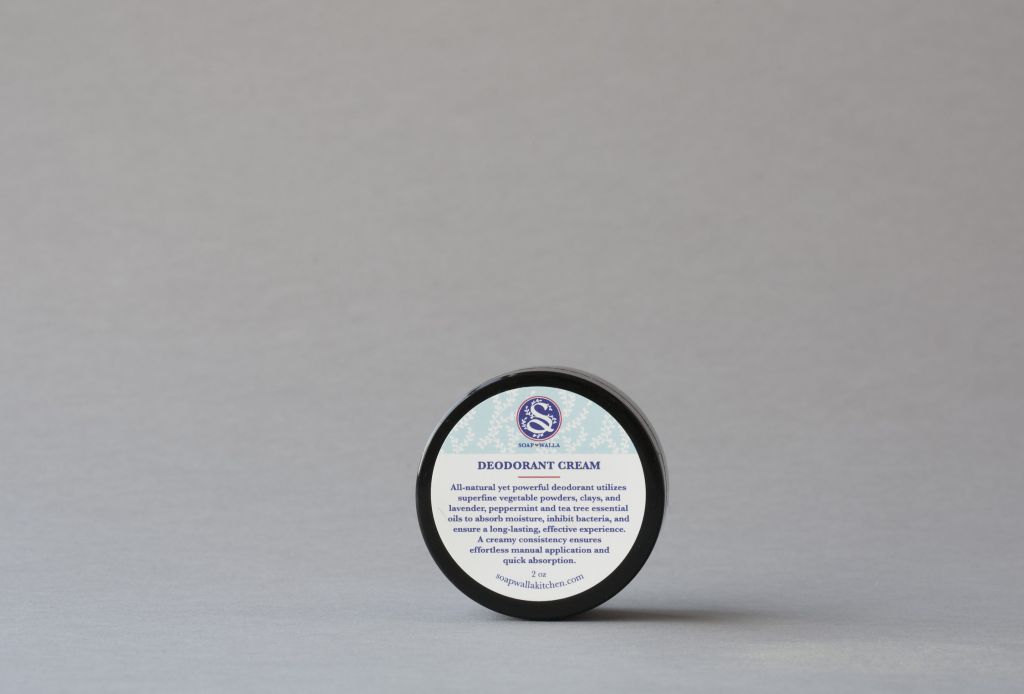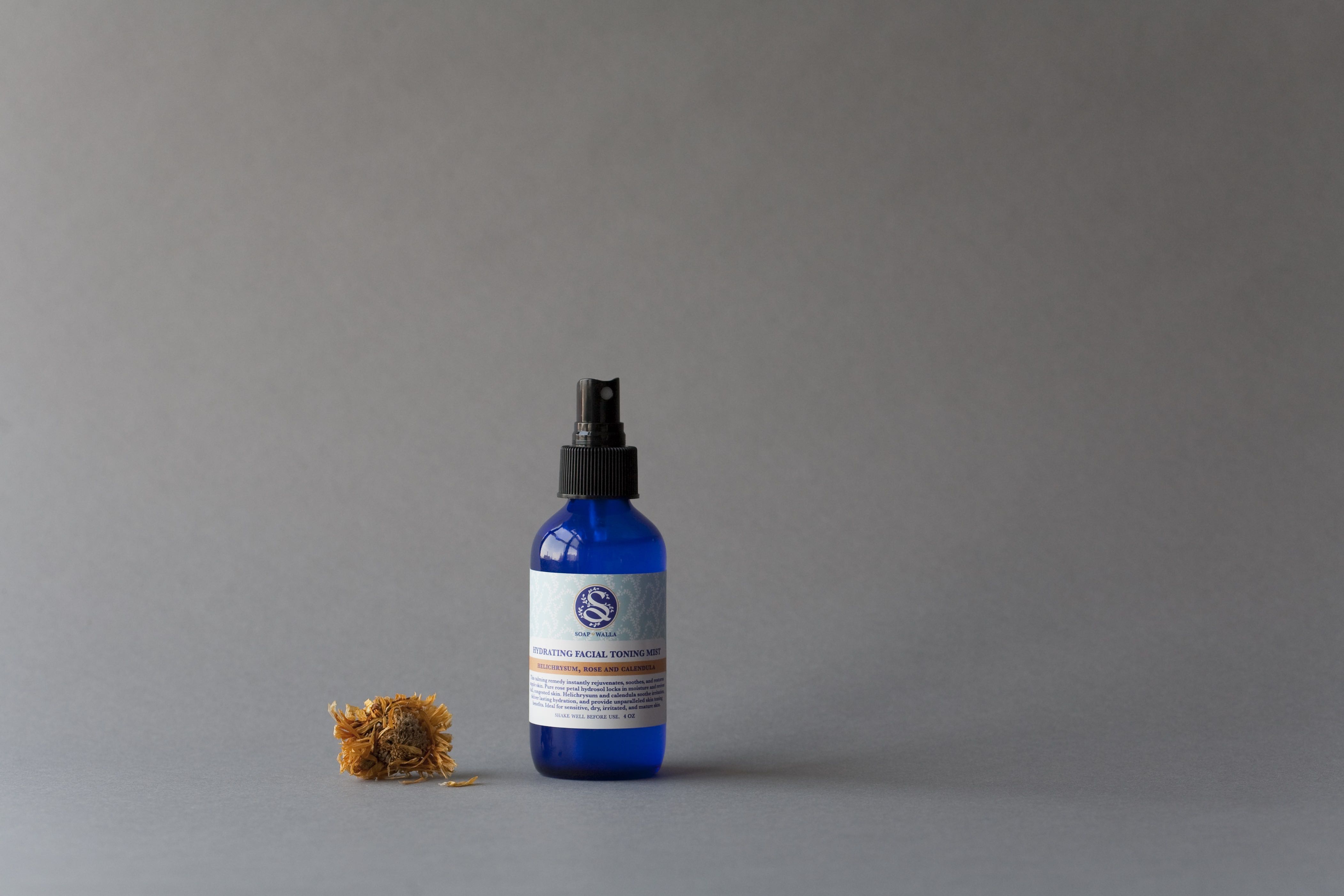
Soapwalla’s Path To Natural Deodorant Dominance
Some people are born entrepreneurs and other people are practically forced into entrepreneurship. Rachel Winard is in the latter group. For the former professional violinist and lawyer, a diagnosis of Lupus and skin conditions caused by the disease (rashes, hives, eczema, blisters, psoriasis patches and more) compelled her to develop products that wouldn’t exacerbate irritation. After seven years of tinkering with formulas, Winard finally launched Soapwalla in 2009, and the brand has since established itself as a dominant force in natural deodorant. She talked to Beauty Independent about the downside of being known for deodorant, rejecting big-box stores and taking Soapwalla to the next level.
When did you reach profitability?
We started Soapwalla with zero dollars, and it was in the black since launch. We 100% own the company. We haven’t taken a bank loan or investment. I didn’t want to be beholden to anyone. When one has a chronic illness, you can feel debilitated. Your body is betraying you. I felt like I was starting to get my power back. I didn’t want to be in a position where I had to make concessions.
As someone with Lupus, were you worried about health insurance when you went out on your own?
I was terrified. I was on COBRA for 18 months to two years after I left the law firm. We didn’t have Obamacare at the time. Then, I had to go out on the open market and find someone to insure me with a preexisting condition. In New York, luckily, we had some protection for preexisting conditions. Then, once the Affordable Care Act passed, we had more options. With corporate taxes, I will happily subsidize health insurance.

Pretend I’m a retailer. Give me a quick pitch on your brand.
We are one of the preeminent natural beauty brands on the market. We pride ourselves on the quality of the ingredients that we use, and the fact that our products work as well as if not more effectively than traditional cosmetics.
What is Soapwalla’s retail strategy?
We are sold in about 250 retailers around the world. We made the conscious decision early on to work with likeminded businesses. We do particularly well in concept and design stores. We entered Colette five years ago, which definitely helped us get on the radar of other likeminded shops. The EU is our biggest market, and we sell at least 50% in that market.
Direct versus wholesale?
Our ecommerce site is about 30% of our sales, and wholesale is about 70%.
Is Soapwalla on Amazon?
We have two retailers on Amazon, but we are not personally on Amazon. Amazon is a global platform that can’t be ignored. My strength is not necessarily being on Amazon, but I understand why we have retailers who want to be on it. The reach is unparalleled.
You’ve turned down large retailers. Was that hard?
Yes and no. Yes because it’s lovely to get a large check, and no because I instinctively knew it wasn’t the direction I wanted the company to go. I knew we would have to get investment money, and we would be altering things to meet the demands of those retailers.
What’s something a retail partner of yours does that you wish was standard?
Follain does a lot of meet the maker events and educational outreach. That’s something I’m so passionate about. I personally travel. I don’t send anyone else when Soapwalla is being represented. I get out there and explain why we do what we do. That really helps the customer understand the choices we make.
“I didn’t want to be pigeonholed, but it doesn’t matter. I am making something that works and people like it, so I came to really embrace it. We are putting out two new deodorants this fall.”
What’s your price range and why?
The range is between $5 for the tiniest travel size and $144 for the largest gift set. The way you are supposed to price is look at the cost to produce and double it for your wholesale number and double that to come up with your retail number. I didn’t follow a lot of the rules. We underpriced our product at the beginning, which has a pro and a con. The pro is you are more accessible to people, and the con is, as you grow, you feel the pain a little more. We are slowly on our way to being more in line with the true costs.
Soapwalla is recognized for its Deodorant Cream, but has 37 SKUs spanning face, lips and body. Are you concerned Soapwalla is typecast as a deodorant brand?
I pushed against it for a long time. I felt I didn’t want to be pigeonholed, but it doesn’t matter. I am making something that works and people like it, so I came to really embrace it. We are putting out two new deodorants this fall.
Do you have a mentor?
Maxwell Ryan, who founded Apartment Therapy, is my mentor. I specifically looked for a mentor not in the green beauty business. He and I meet three times and year, and we email periodically. He’s a great resource. He is constantly changing. His website morphs all the time. He tries something. If it doesn’t work, he is really good at trying something else. It’s crucial to find a mentor that has the same principles as you, but is not in the same field.
Is there a supplier you wouldn’t be able to execute your brand without?
Mountain Rose Herbs. They consistently have high quality product. If you are just starting out, you can get a 1-oz. bottle of essential oil from them and be 100% sure it is what they say it is.
What key business functions are better for Soapwalla to outsource?
Anything IT related and PR. I get completely overwhelmed with email. If Vogue is like, “I want to feature you,” and I can’t get to it, that’s not good.

You mentioned you haven’t received outside investment. Will you raise funds ever?
At some point, we will need outside help. The longer you are in business, the farther the leap is to the next level, and that’s hard to sustain internally. But we are going to stave off outside help as long as we can.
What is the next level for you now?
There are two markets I really want to break into: the hotel market and the spa market. Another big step that I would like to do is potentially manufacture in the EU or be more present there physically because we do so much business there.
Soapwalla received a warning letter from the U.S. Federal Drug Administration. How did you respond?
The F.D.A. informed us that we were not allowed to state the well-known uses of essential and seed oils considered “drug claims” by the Food, Drug & Cosmetic Act. We immediately removed all language from the site and made ourselves fully compliant. At Soapwalla, our motivations remain firmly rooted in creating the very best natural products for our customers while remaining fully transparent, as we have since the beginning, and will continue to comply with F.D.A. regulations.
You manufacture Soapwalla products yourself in small batches. What does small batch actually mean?
Small batch has changed over time. When I first started, it was like one product, like an individual bottle at a time. Now, it might mean 200 to 1,000 to 1,500 at a time, depending on the product. There is something lovely about physically touching and pouring the ingredients.
Is small batch manufacturing sustainable for you in the long term?
It’s definitely not. That’s something that I’m also going to stave off as long as possible.
“Put your head down and just keep working. It’s not the sexiest advice, but it’s the most important. There is no such thing as overnight success.”
If you could get your products into the hands of anyone, who would it be?
Amy Poehler because I just love her, and the Obamas. I would hand deliver that because I want to meet them really, really badly.
What suggestion do you have for fellow entrepreneurs to withstand the tough times?
Put your head down and just keep working. It’s not the sexiest advice, but it’s the most important. There is no such thing as overnight success.




